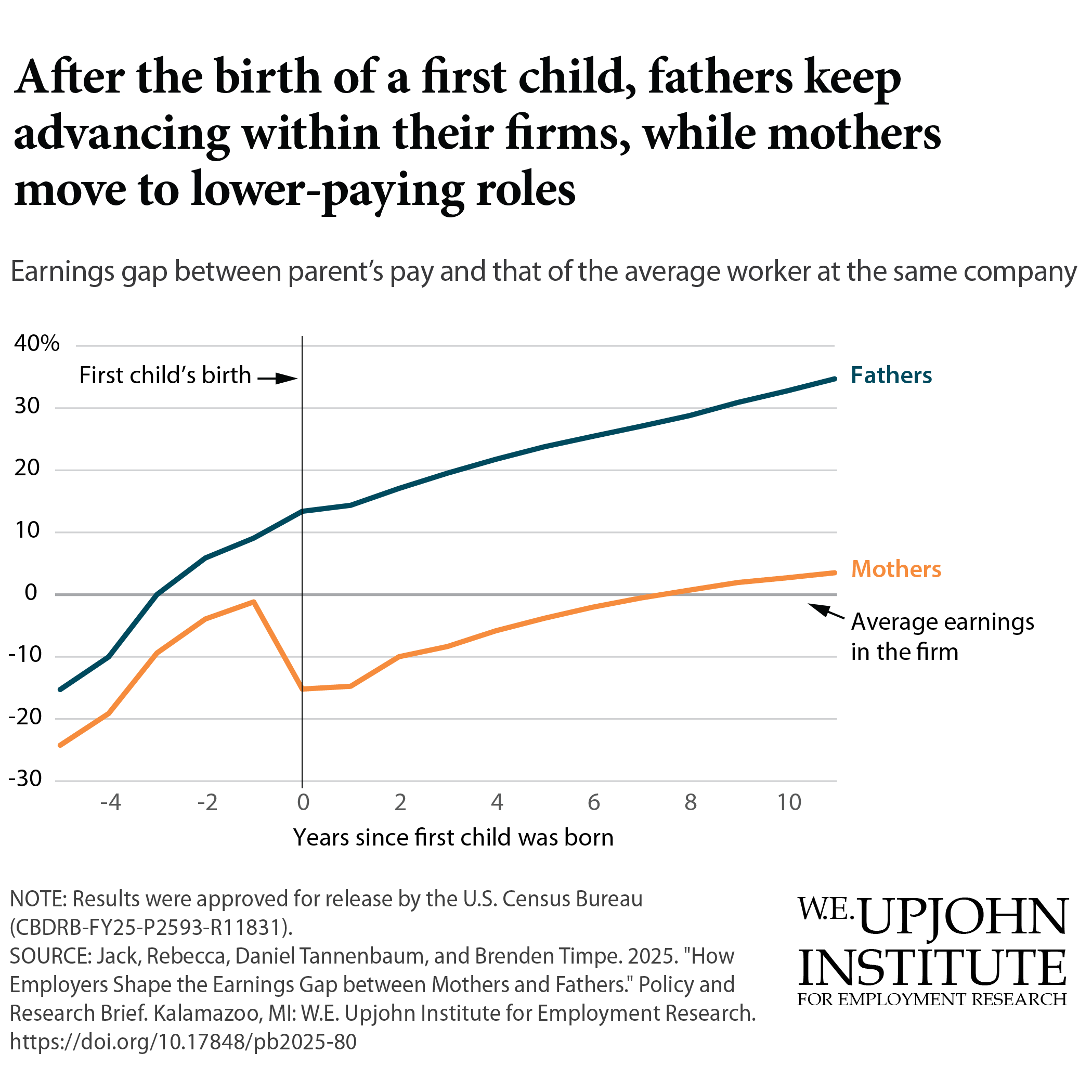Throughout their careers, U.S. women earn less, on average, than do men. New research funded by the Upjohn Institute’s Early Career Research Awards program shows how drastically parenthood widens this gender gap.
Before becoming parents, men and women increasingly move to higher-paying employers and to higher-paying roles with current employers. After childbirth, men stay on this upward path while women move to lower-paying employers, the research finds.
Eleven years after the child’s birth, the difference in employers accounts for a third of the gender earnings gap. The highest-earning women and those who leave the labor force for a year or more around childbirth experience the largest drops in pay.
The lower-paying jobs that mothers take tend to offer part-time hours, shorter commutes and more opportunities for remote work. However, these jobs are less likely to provide employer-sponsored health insurance.

Mothers also fall behind their co-workers when children are born. In the year before birth, mothers’ earnings are on par with their co-workers, but they fall behind by about 17 percent in the year of birth. It takes about seven years on average for mothers to get back to the status they held before childbirth. Fathers, meanwhile, increase their earnings positions at their employer over those years.
To conduct the study, the researchers linked national birth records from 1997 to 2022 with data on employment and earnings of the parents from 25 states, focusing on first births to parents with established careers. Their final sample included 2.2 million mothers and 2.5 million fathers.
Researchers Rebecca Jack, Daniel Tannenbaum and Brenden Timpe, all of the University of Nebraska-Lincoln, describe the study in an Upjohn Institute working paper and policy brief.
